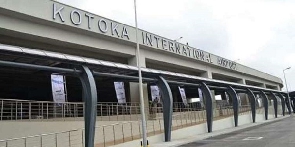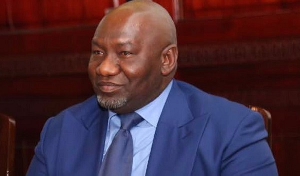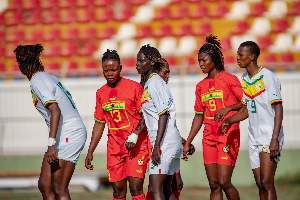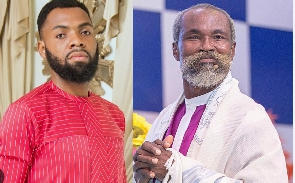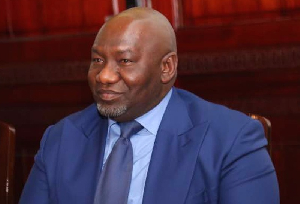On the 24th of February 1966, a group of armed military and police officers turned their arms against the very constitution they swore an oath to protect.
These officers, led by Ankrah, Afrifa, Deku, Nunoo, Harley, and Kotoka, formed the National Liberation Council (NLC), ruled Ghana as a military dictatorship, and imposed their will as law. This bad precedent triggered successive military takeovers that destroyed Ghana’s political and economic growth.
In less than two years after the NLC's 1966 crimes, another group of soldiers staged a coup against the NLC. Their operation, though unsuccessful, led to the execution of Colonel E.K. Kotoka, the face of the 24th February 1966 counter-revolutionary rebellion.
The NLC junta, without any popular mandate, decided to name the Accra International Airport after Kotoka through the Kotoka Trust Decree. Succeeding military juntas like the PNDC upheld such criminal imposition and even went further to indemnify these military personnel for their crimes against the state and incorporated their military decrees as part of the laws of Ghana in the 1992 constitution.
Are coup makers heroes or enemies of the state? If coup makers are heroes in Ghana, then the fundamental values of the state contradict the tenets of democracy. But if coup makers are enemies of the state, then the laws that establish that Ghana’s international airport should be named after Kotoka are treasonous. The name Kotoka International Airport is a symbolic expression of respect and adoration for coup makers.
It justifies that soldiers should take up arms against the state whenever they are disgruntled with the policies of the ruling government. Is the parading of a coup maker who died in an abortive coup to protect his coup projecting democratic values to the international world?
The act of accepting military decrees as laws of Ghana contradicts democratic values. The entire grounding of Ghana’s democracy is hinged on the overriding power of a group of soldiers against the entire population. This position manifests in Kotoka’s name on Ghana’s international airport.
The 24th February 1966 event is projected as a cherished virtue and the guiding light of Ghana as a state. Given that waves of coups are gaining popularity in West Africa, it is only a matter of time for such treasonous actions to resurface in Ghana if we refuse to recognize coup makers as enemies of the state.
The precedent established in Ghana now openly adores and protects the military overthrow of elected governments. This dangerous position of the state is an attack on popular sovereignty and makes Ghana a failed republic. The supreme powers of the state reside in military decrees that are imposed in the laws of Ghana.
The Kotoka Trust Decree, transitional provisions, and indemnity clauses repress popular sovereignty. As it stands, Ghana is run based on the whims and caprices of elite military officers instead of the will of the people.
The 24th February 1966 must be remembered for its true essence: “a day of national crime, sin, and anarchy,” as expressed by Kwame Nkrumah. To undo the impact of this evil, we must remove military decrees from the current constitution of Ghana, and we must remove Kotoka’s name from Ghana’s airport.
In fact, it would be a step in the right direction to commence the drafting of a new constitution under a civilian government instead of attempting constitutional reviews that never materialize. It would set a democratic precedent that represses coup-makers spearheading and imposing laws.
The current 1992 constitution was spearheaded by a military junta. It was drafted by the appointees of J.J. Rawlings and provides enormous executive powers to suit a dictator, making it unrealistic that anyone who assumes such powers will be willing to accept constitutional reviews that limit such powers. This reality compels the need for Ghanaians to demand a new draft.
After all, the 1992 constitution is a document that entrenches political extortion (Article 71), represses local government, provides a rubber-stamp parliament, and dictatorial executive powers, aside from being established based on military decrees.
Ghana must send a strong signal to everyone in our part of the world at this moment by removing Kotoka’s name from our international airport. We believe this will be the best way to remember the 24th February event in 2025. It will be a democratic victory against the forces that repressed mass power from the onset of Ghana’s republic.
Opinions of Monday, 24 February 2025
Columnist: Arhin Otoo

